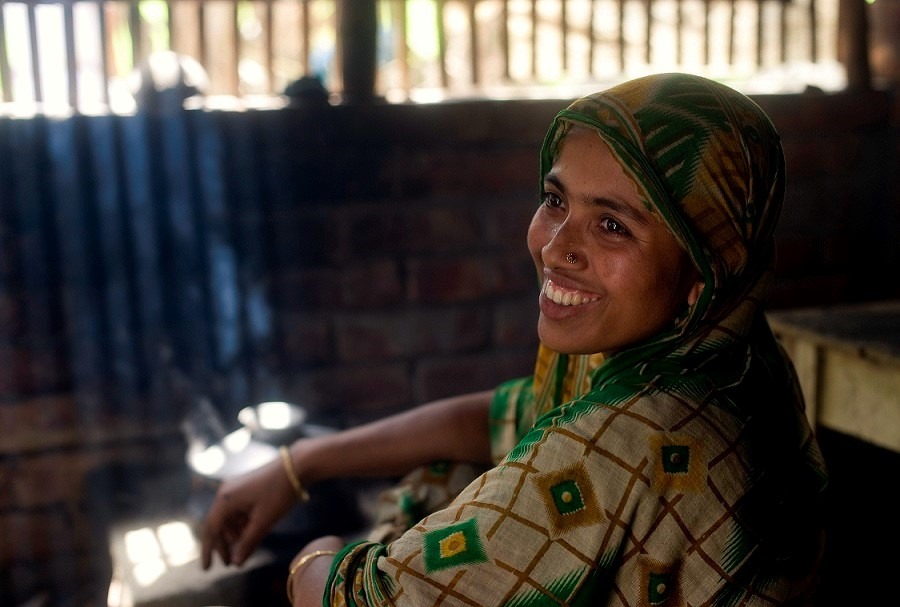Bangladesh is among the most populous countries in the world with more than 1,100 people packed into every square kilometre. 4 million people don’t have clean water in the country, while over 50% of the population do not have access to basic sanitation.

Moreover, it is estimated that 2,000 children under 5 die from diarrhoea caused by dirty water and poor toilets. To improve the health of families, Habitat for Humanity has partnered with many local organisations to provide access to clean water, safe sanitation facilities and raise personal hygiene standards – effectively reducing the spread of diseases within communities.
Fechia is a remote community located in Northern Bangladesh. Previously, open defecation was the norm in the community, and there was very little understanding of proper water, sanitation and hygiene practices.
With the support of Habitat for Humanity, a new well was installed, giving families access to clean water. Habitat also formed a community Water and Sanitation committee to improve the community’s sanitation and hygiene practices. Zakir, the head of one of the committees, explained that he was inspired to take action as he has always wanted to do something positive for his community.
After receiving training with Habitat, Zakir and the committee then went door to door and organised several courtyard meetings to educate others. They emphasised the need to eradicate the practice of open defecation in order to maintain a clean and healthy community.
While the change did not happen overnight, Fechia was finally declared open defecation free by the local government body on 15 March 2017.
“Personally, I didn’t have the proper knowledge before getting training from Habitat. It was only after that I understood the importance of hygienic practices,” Zakir said.
"I AM HAPPY TO SEE THE POSITIVE CHANGES IN THE COMMUNITY. I AM GRATEFUL TO HABITAT FOR GIVING ME THE OPPORTUNITY TO HELP TRANSFORM FECHIA INTO A HEALTHY COMMUNITY."
“We had to go to a rich man’s home to collect water from the well and would have to wait for an hour,” said Amena. “We had to go in the morning and the evening, and this meant that we lost a lot of working time.”
Through Habitat’s Water, Sanitation and Hygiene project in Northern Bangladesh a new well has been installed in Amena’s village.
“The new well has improved the health and hygiene of my community,” said Amena.
“PEOPLE FROM SURROUNDING AREAS NOW COME TO OUR VILLAGE TO COLLECT WATER. WE FEEL PROUD THAT WE HAVE OUR OWN WELL AND DO NOT HAVE TO RELY ON OTHERS.”